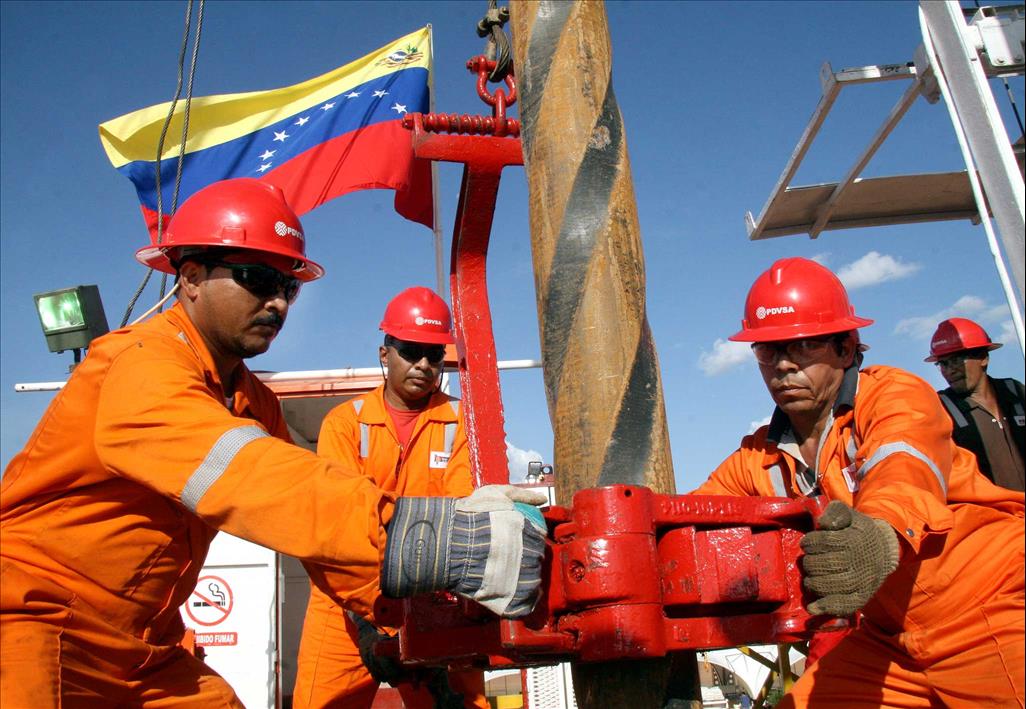(MENAFN- Venezuelanalysis) Mexico City, Mexico, August 1, 2023 (venezuelanalysis.com ) – A joint offshore gas project between Venezuela and Trinidad and Tobago has stalled as a result of the Nicolás Maduro government's rejection of stringent terms that flow from US sanctions on the country.
“The Venezuelans have not accepted the terms laid down by the Americans. That is the long and short of it,” said Trinidad and Tobago Prime Minister Keith Rowley during an interview Thursday in local media.
Caracas is currently engaged in negotiations with Port of Spain to export natural gas from the offshore Dragon field, which has 4.2 trillion cubic feet (tcf) worth of deposits. The operations would be run by Dutch multinational corporation Shell.
Any deal is subject to US approval via the Treasury Department's Office of Foreign Assets Control (OFAC) as a result of US sanctions on Venezuela that effectively constitute a blockade of the country's hydrocarbon industry.
The Rowley government persuaded the US to grant a two-year license for the project in January. However, OFAC barred Venezuela from receiving cash payments from the deal, terms that Venezuela has steadfastly refused to accept and that President Nicolás Maduro has labeled a form of colonialism.
Despite its best efforts , Trinidad has been unable to get the US to adjust its terms. Rowley said negotiations with all parties were ongoing but nonetheless expressed disappointment over the delay in getting the project started.
Trinidad and Tobago urgently needs new fuel sources in order to supply its industrial plants, which are currently operating below capacity. In July the Caricom regional bloc called for sanctions against Venezuela to be lifted due to their impact on countries throughout the Caribbean. As a result of US sanctions, Venezuela was forced to suspend the Petrocaribe program that supplied Venezuelan crude oil to Caribbean and Central American nations at preferential prices with long-term payment plans or in exchange for other goods or services.
Venezuela has pursued joint projects with other countries as part of broader effort to rescue the country's hydrocarbon industry and restore production levels following years of underinvestment due to strict US sanctions.
Venezuelan Oil Minister Pedro Tellechea, newly installed in the post following a corruption scandal involving the country's oil industry, announced last month that state-owned PDVSA would more aggressively pursue natural gas projects.
Tellechea likewise said as of July that the country was producing approximately 831,000 barrels of oil per day (bpd), marking the highest level of production since early 2020 and down from a recent high of nearly 2 million barrels per day (bpd) in 2017 prior to the first coercive measures from the US Treasury Department.
Venezuelan news outlets reported that PDVSA reached an important landmark, producing gasoline simultaneously at its four main refineries: Cardón, Amuay, Puerto La Cruz and El Palito. Cardón and Amuay jointly form the 955,000 bpd capacity Paraguaná Refining Complex, the largest in the hemisphere.
According to industry sources, the plants are currently producing around 130,000 bpd of gasoline, with demand estimated at 220,000 bpd. The Maduro administration has stated that tackling fuel shortages is a short-term priority.
Beyond limiting the ability of PDVSA to sell oil in the international market, US sanctions have also made securing parts nearly impossible and severely hampered the country's ability to service critical oil and gas infrastructure. The US-led blockade complicates PDVSA's ability to conduct maintenance and infrastructure work due to a phenomenon known as “overcompliance” whereby firms refuse to do business with Venezuela due to fear of running afoul of strict US sanctions despite not necessarily violating unilateral coercive measures.
Venezuela has signed various cooperation agreements with Iran, including a deal to jointly rehabilitate the South American nation's Paraguaná complex with the aim of helping PDVSA begin to break away from its dependence on US refinery technology.
The two countries enjoy close political, economic, and diplomatic relations, which have been further strengthened as a result of increased interference by Washington and the imposition of punishing sanctions regimes on both nations.
Edited by Ricardo Vaz in Caracas.



















Comments
No comment